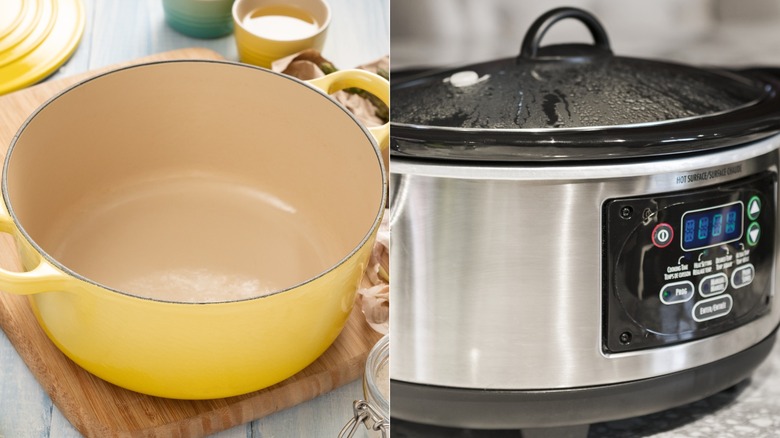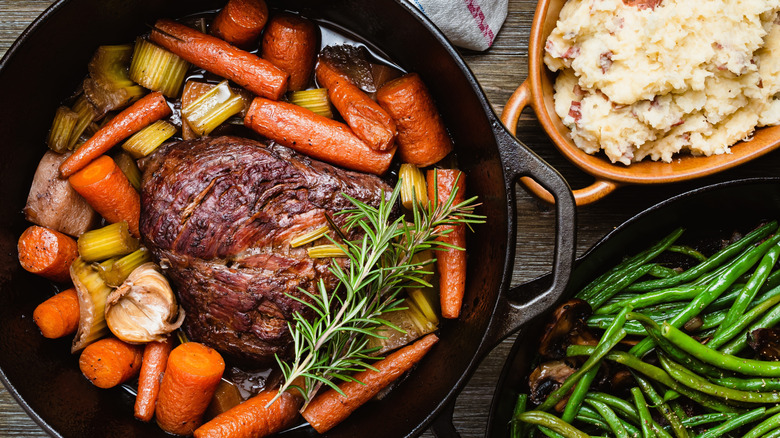Dutch Oven Vs Slow Cooker: What's The Difference?
A large pot that slowly cooks meat and vegetables, is perfect for one-dish meals, soups, and stews, and is one of the best ways to make dinner on a busy evening. Are we talking about a Dutch oven or a slow cooker? They both fit the bill, so what's the difference?
Although the kitchen appliances are similar in theory, they have different mechanisms and benefits. Dutch ovens are typically made of cast iron with a capacity anywhere from one to more than 15 quarts. They have a circular or oval base and a matching lid. They're used on the stovetop or in the oven.
Meanwhile, slow cookers — often known by the brand name Crock-Pot — are plugged into an electrical outlet. There are buttons on the top or the sides to adjust the settings, and they're usually left alone to cook for several hours after home cooks add the ingredients in the morning or early afternoon. Slow cookers are also often used for keeping food warm after it's been cooked but before it's been served at a potluck or a Thanksgiving meal.
Let's be real: Counter space is limited, and so is money. Dutch ovens and slow cookers both have unique benefits and specialties, but if you're planning to stick with just one of the two, there are some ways to adapt what you have to cook whatever you want to make.
Important differences to remember when switching between Dutch ovens and slow cookers
One of the advantages of using a Dutch oven is that you can put it over a stovetop burner for browning or frying or in the oven. Slow cookers trap moisture, which will cook your meat but not brown it. Dutch ovens cook as much as four times faster than slow cookers, so a recipe that takes six to eight hours in a slow cooker might take two or three in a Dutch oven.
However, heat varies between appliances, and the cooking time will also depend on the ingredients and their size. Because of the variation, it's a good idea to check on your recipe's doneness a little before the cook time is up. Slow cookers also retain moisture better than Dutch ovens, so you should reduce the amount of broth you put in when converting from a Dutch oven to slow cooker recipe and add extra moisture if you're swapping the other way.
Unfortunately, the one-pot convenience of Dutch ovens has one catch: It's better to avoid putting your Dutch oven in the dishwasher. However, pieces of your slow cooker, including the lid and the often removable inner bowl, can be placed in the dishwasher — just make sure you leave the electrical plug safe on the counter!

